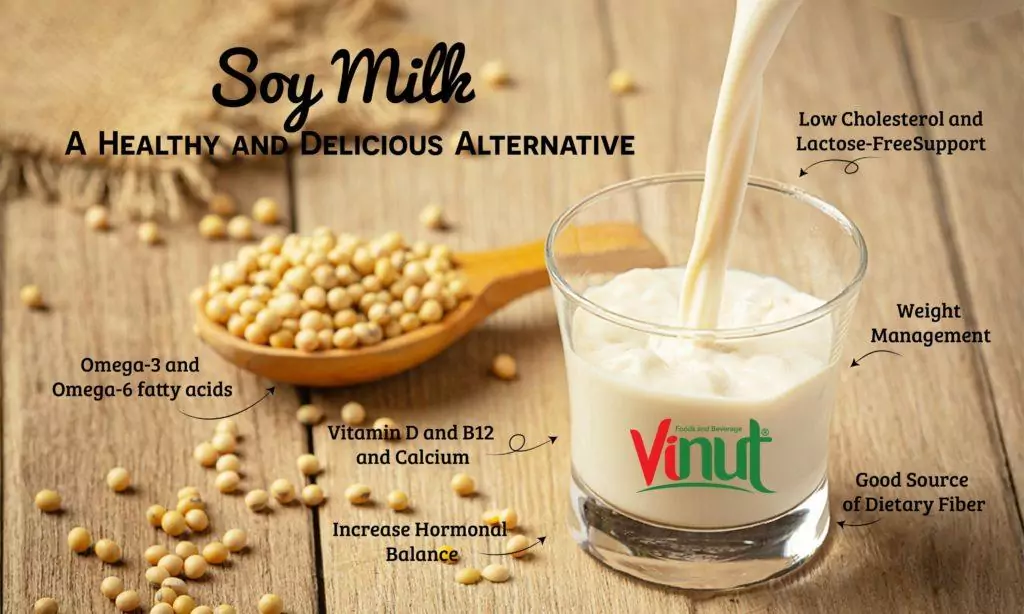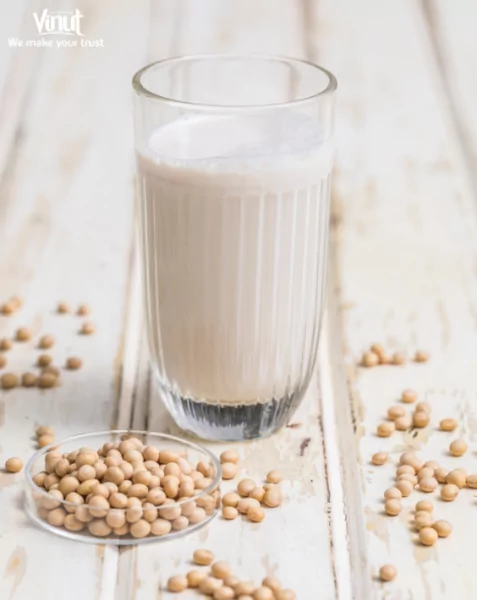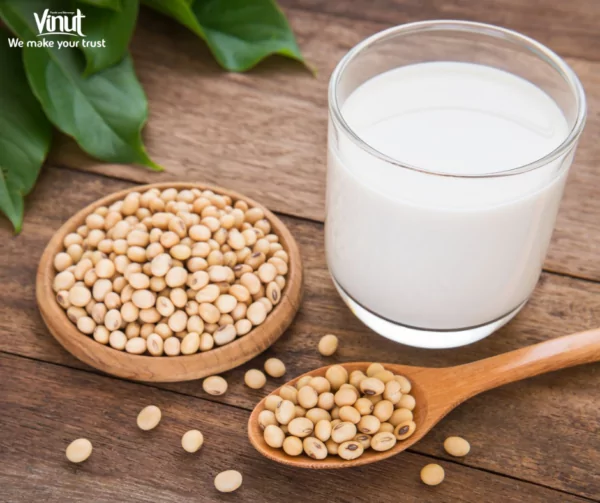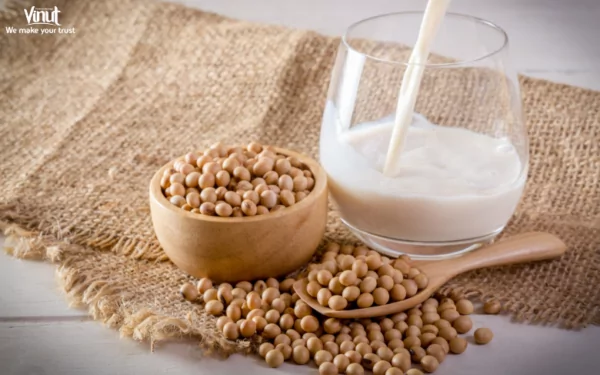Soy Milk: A Healthy and Delicious Alternative
In this article, VINUT will go into the world of soy milk, exploring its benefits, uses, and the various ways it can be incorporated into your diet.

What is Soy Milk?
Soy milk has a mild, slightly fatty flavor and a creamy texture similar to cow’s milk. It can be used as a substitute for cow’s milk in a variety of applications, including drinking, baking, and cooking, and as an ingredient in smoothies, coffee, and tea.
One of the main advantages of this milk is its nutritional composition. It is a good source of plant-based protein, essential fatty acids, and several vitamins and minerals. The milk is generally low in saturated fat and cholesterol free, making it a good choice for the heart.

Nutritional Profile of Soy Milk
Protein
The milk provides approximately 8 grams of protein per cup, making it an excellent option for individuals looking to increase their protein intake.
Healthy Fats
It contains heart-healthy fats, including omega-3 and omega-6 fatty acids, which are beneficial for maintaining brain function and promoting overall well-being.

Fiber
The milk is a good source of dietary fiber, promoting healthy digestion and providing a feeling of satiety.
Low Cholesterol and Lactose-Free
Unlike cow’s milk, soy milk is naturally cholesterol-free and does not contain lactose, making it suitable for those with lactose intolerance or individuals following a vegan or plant-based diet.

Potential Health Benefits
Cardiovascular Health
This kind of milk is said to support the cardiovascular system because it contains a significant amount of potassium, which helps maintain stable blood pressure and supports a more stable heart rhythm. What’s more, milk contains isoflavones, a type of plant compound found in soybeans, which may help lower LDL (bad) cholesterol levels while increasing HDL (good) cholesterol levels. This cholesterol-balancing effect contributes to improved heart health and reduced incidence of heart-related problems.

Bone Health
Fortified soy milk is an excellent source of calcium, a mineral crucial for maintaining healthy bones and teeth. Calcium, combined with vitamin D, enhances the body’s ability to absorb and utilize calcium effectively. Including it in your diet can thus promote optimal bone density and reduce the risk of conditions such as osteoporosis.

Weight Management
Soy milk is considered one of the drinks that can help control weight for people with health problems. This type of milk is low in calories, but the protein and fiber in milk promote a feeling of fullness, reducing the likelihood of overeating.

Hormonal Balance
It contains natural compounds such as phytoestrogens, namely isoflavones, which are plant estrogens. These compounds have been found to have a positive effect on hormonal balance, especially in women going through menopause. Isoflavones may help alleviate menopausal symptoms such as hot flashes and night sweats.

Incorporating Soy Milk into Your Diet
Enjoy a refreshing glass of chilled soy milk on its own, or use it as a base for smoothies and shakes. Add your favorite fruits, such as berries or bananas, for added flavor and nutrition.

Replace cow’s milk with soy milk in your coffee, tea, or hot chocolate. It froths well and can be a great substitute for a latte or cappuccino.

Use soy milk in your morning cereal or oatmeal. It adds creaminess and a hint of nuttiness to your breakfast bowl.

Make delicious soy milk-based desserts like pudding, custard, or ice creams. The creamy texture of soy milk lends itself well to these sweet treats.

Choosing and Storing Soy Milk
Opt for unsweetened or lightly sweetened varieties: this allows you to control the sugar content in your beverages and recipes.
Store properly: Keep your soy milk refrigerated and consume it within a week after opening. Shake well before each use to ensure the ingredients are well mixed.

